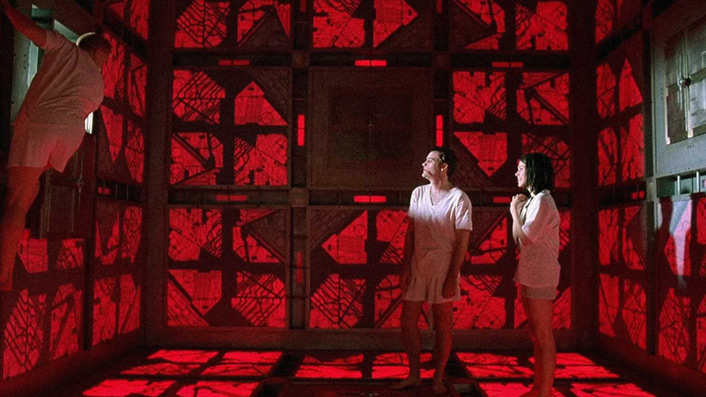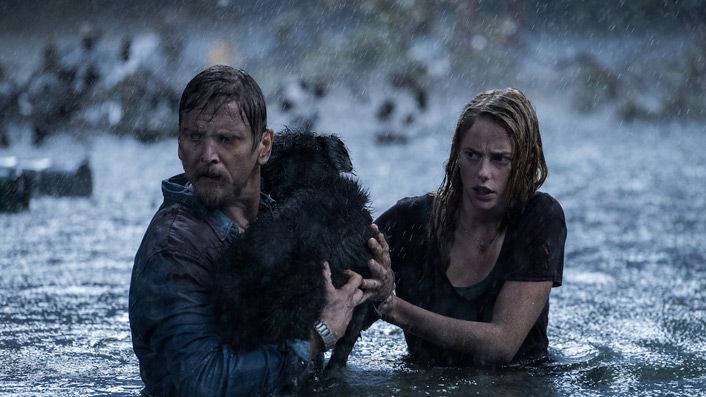6 capsule reviews for thrillers

Cold in July (2014)
Directed by Jim Mickle and starring the impressive trio of Don Johnson, Sam Shepard and Michael C. Hall, Cold in July is a moody thriller that not only oozes menace, but leans wholeheartedly into its sleazy, pulpy vibe. The setup, as based on the novel of the same name: when a man accidentally shoots a burglar as they’re breaking into his home, the robber’s father sets out to get revenge.

Crawl (2019)
Monster movies typically go one of two ways and, while Crawl could’ve proven a cheesy, formulaic, Sharknado-style mashup of alligators and hurricanes, it actually serves up a taut, suspenseful, snap-happy thriller. All of the expected elements are present as Kaya Scodelario and Barry Pepper try to scamper out of biting reach beneath a Florida home; however experienced horror director Alexandre Aja knows how to turn this disaster-drive fare into an effective flick.

Cube (1997)
It’s hardly astonishing that Vincenzo Natali’s sci-fi/horror-thriller became an immediate cult hit upon its 1997 release, instantly winning over viewers with its surreal and savagely clever concept. In a connected series of cube-shaped rooms, a group of strangers endeavour not just to survive, but to escape—and to evade the intricate and brutal traps that’ll kill them if set off.

Memento (2000)
For a film about a man struggling with his memory, Memento certainly had zero troubles tattooing itself into the brains of its adoring viewers. The concept behind Christopher Nolan’s first big hit is both clever and compelling, as is the supremely twisty script; however it’s the writer/director’s execution—and the pitch-perfect performance by Guy Pearce—that help this 2000 instant classic linger in the mind for much, much longer than 15 minutes.

Pi (1998)
In hindsight, it seems obvious. If anyone was going to turn their low-budget feature debut into a compulsive and compelling thriller about an obsessive mathematician, it’s Darren Aronofsky. Made for less than $140,000, Pi premiered at Sundance in 1998 and instantly became the movie everyone was talking about, with its bustling black-and-white frames charting a search for order—and, thanks to humanity’s chaos, the impossibility of that quest.

The Nightingale (2018)
Jennifer Kent’s sophomore feature, following The Babadook, is a stunning piece of Australian cinema that isn’t afraid to confront the country’s violent and oppressive colonial past head on. From its brutal beginning, which demonstrates the horrific treatment received by Irish convict Clare Carroll (Aisling Franciosi) at the hands of British soldiers, The Nightingale doesn’t waver in tone or intensity—or in its exceptional performances by Franciosi and Indigenous dancer-turned-actor Baykali Ganambarr.
















